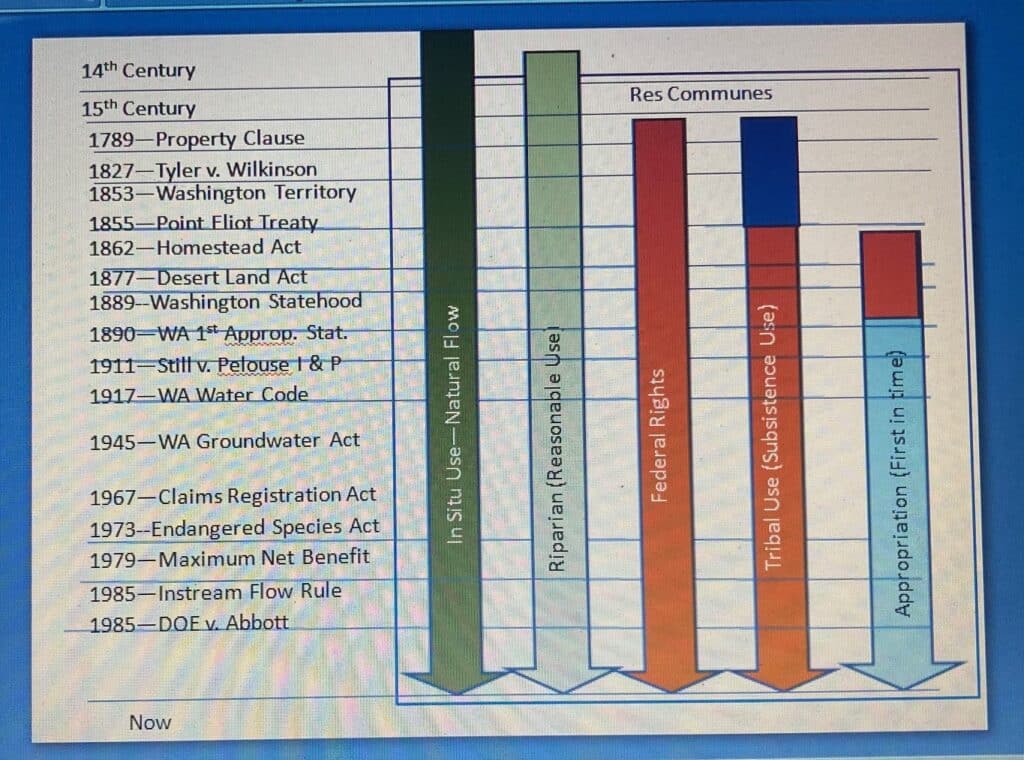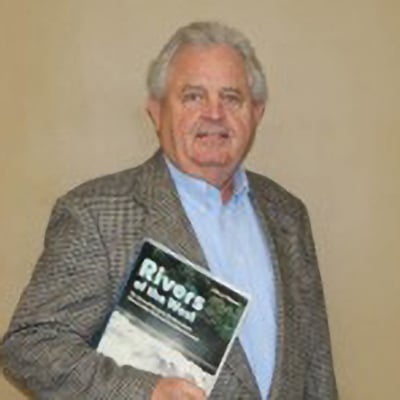Prior Appropriation
RCW 90.030.010 says that “as between appropriations, the first in time shall be the first in right.”
Some Details
“Appropriation” is “taking”
“Appropriation” is not “granting” or “licensing.”
The priority of right is between appropriators, not between the appropriator and the state.
The priority of right gives the senior appropriator a cause of action against a junior appropriator.
Theoretical seniority alone means nothing. Injury to the senior right must be caused by exercise of the junior right (likely through physical interference with the availability of water.)


There are various types of water rights.
In situ rights: The common law right, based on the public ownership of water, that water flow freely and undisturbed in the stream for the benefit of the common, for the user downstream, for everyone.
Riparian rights: The common law right of the owners of real estate bordering the water body to remove (appropriate) reasonable amounts of water for beneficial uses. No time-based priorities.
Federal Water Use rights (general): The right created by the United States pursuant to the Property Clause to use water either taken from or used within the water (e.g., Federal reservations, Endangered Species Act). No time-based priorities.
Federal Water Use rights (tribal/indigenous): The right created (depending upon point of view) by either the United States pursuant to the Property Clause or the Treaty Clause or by tribal self determination in time immemorial to abide upon and use water for sustenance purposes (e.g., “Winters Rights”). No time-based priorities.
State Appropriative rights: The right to take water from public water sources under state jurisdiction pursuant to license from the state. Time-based priorities.
Our Founder
The Foundation was established by James H. Davenport, an attorney with over 50 years of experience in environmental and water law. Mr. Davenport has dedicated his career to addressing natural resource and environmental law issues, with a focus on water rights, environmental law, development of water supplies, interstate river management, and interstate groundwater supplies. His extensive experience includes serving as Chief of the Water Division for the Colorado River Commission of Nevada and as Assistant Counsel for the United States Senate Environment and Public Works Committee. He has also held academic positions, teaching Western Water Policy and Environmental Law and Policy.
Mr. Davenport works pro-bono. He is committed to educating water users and communities about water law and environmental justice. His objective is the common good.

Get Involved
Water belongs to the public. The right to use it for human sustenance is fundamental. Water shortage affects us all. Solving competition for its use requires collective action. Whether you are an individual, organization, or policymaker, there is a place for you at the Water Means Life Foundation. You can contribute by associating with WMLF.
